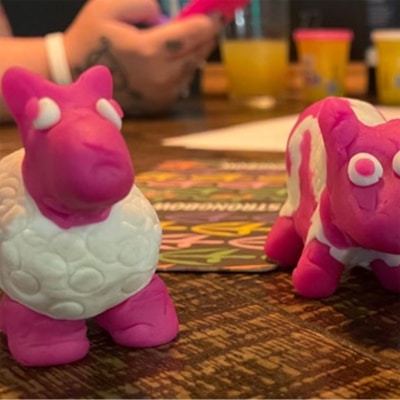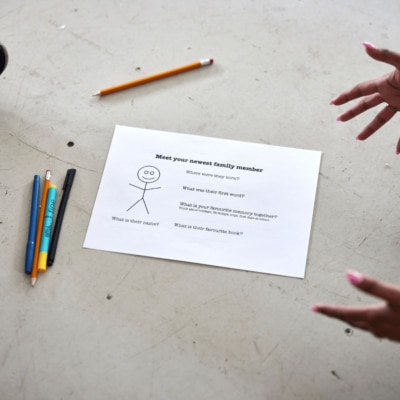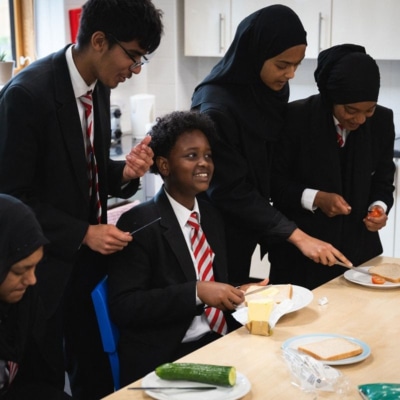SuperMe, Truth Specs, an award
Posted on January 2nd, 2013
Looking back over recent months there are a few projects we’ve meant to write about, but busyness has precluded those posts at the best of times. So here’s one post looking back at two related projects, both collaborations with Somethin’ Else in commissions for Channel 4 Education.
In October, what we’d informally dubbed SuperMe2 was launched at www.playsuperme.com, new content to supplement the existing SuperMe. SuperMe is about individual resilience, how people respond to change and setback, an analogue to well-being. It’s an educational programme broadcast at teenagers aged 14-19, but not a TV programme. Channel 4 Education held the enlightened view that rather than educational TV, which no teen would watch, better to make content that starts where they are: online and playing games. So rather we made a suite of casual games, short films, quizzes and other stuff about resilience, with a game also in how you played through all the site’s content.
I myself had led theoretical and audience research with Somethin’ Else for Channel 4 mapping the territory of mental health and happiness as potentially relevant to teens. My background as an ex-psychologist – although not that kind of psychology – came in handy. We’d landed on resilience as a way into this landscape that wasn’t as stigmatising to a teen audience as ‘mental health’ might be, but also a little less wide-eyed and more realistic than some of the more extreme positive psychology out there. We chose a theoretical framework of individual resilience comprising dimensions of agency – your autonomy and influence in situations, relatedness – your social relationships and networks of support, and competence or adaptability – things you’re good at and enjoy doing and learning to do better; all powered by processes of clear-sighted reflection on what’s happening to you, and grit to stick to your goals. This framework informed the design of the site, the games, and the messages in the films, all brilliantly wrangled by Jo Roach. Coney also ran some playful audience research with groups of teenagers which helped steer all of our thinking. Preloaded also collaborated, designing the games, and the whole project was exceptionally led by Somethin’ Else.
It had some amazing humbling audience feedback from a formal evaluation run by Channel 4, showing that it was actually working to help teens think better and more clearly about the challenges of their daily lives. So forward two years, and SuperMe2 commissioned in the form of new material for the existing site.
Coney worked with Somethin’ Else and Preloaded again, especially in helping them design one new bigger game called Supersight. If you’re only making one game to reach a teenage audience, there’s a challenge in that boys and girls tend to gravitate towards very different gameplay – for one thing, boys like combat; but girls don’t, especially with realistic violence. So we decided to make a combat game but one as fantastical and non-violent as possible. The game might only be played once and briefly by a casual audience so important to ensure that the core of the game embeds the core learning clearly – here that it’s important to have clear sight on what’s happening to you in a situation so that you can best respond.
So it became about Supersight. Neil Bennun wrote the game and we wrangled to set it inside what is revealed as an inner landscape – the fearful Mount Wrong, where you face hordes of creatures representing different mode of negative thinking. We ran research with groups of teens, especially through the brilliantly accommodating Southfields Academy (huge thanks to Mr Bragg and Mr Haxton for their support), which helped steer everything about the game design and the look and feel of the game. The first group tore the game to pieces but better to find that out there than when it was too late. Preloaded ended up doing a brilliant design process but absolutely informed by the audience. Props to Glyn Cannon, Tom Bowtell and Alex Rowse for helping run this research for Coney, and to all at Preloaded and Somethin’ Else, especially Michelle Feuerlicht and Neville Daniel.
In between SuperMe1 and SuperMe2, we collaborated again with Somethin’ Else leading and here also with Player3 in a commission for Channel 4 Education aimed at children aged 10-13. It was about transition from primary to secondary school, which Tom Bowtell and myself had previously researched extensively in theory and in person with children, teachers and parents for another development. The blindingly obvious lightbulb only struck later: transition more generally than just school is a change, resilience is about how to cope with change, the timeline for big life changes in general – what you might dub the honeymoon/bereavement model – maps quite neatly onto the ups and downs and ups again typically seen in transition. Taking that with the message of clear-sighted thinking and reflection being the single most important skill in resilience, Coney, Somethin’ Else and Player3 were commissioned for a project of working title Truth Specs (seeing clearly, geddit?). It had a similar format to SuperMe – a suite of games and films and other content in a website, with your progress through its content gamed, but here we also made a world and a brilliant story through it (written by the two Neils: Bennun and Richards). You’re new to school and have such a bad day that you blow up reality and have to find help to fix it, especially using your magical Truth Specs. Coney ran plenty of audience research again, going to schools all around the country. I especially loved the archetypes of the playground that kids drew, and the stories they told us when we asked them which of these roles they tended to take in secondary school, and how that had changed from primary school.
Here you can see the influence of those archetypes on the design of the game.
Children also told us that they didn’t like the title Truth Specs. So we called it Nightmare High.
And the reason I’m writing about it again now is that to our amazement, it won the BAFTA for Best Interactive Programme in the Children’s BAFTA’s. Amazement because we were up against the might of Aardman and Disney, and the phenomenon that is Tree Fu Tom. But on reflection, it was a damn good project that did what it set out to do, and an amazingly strong team across the board, greater than the sum of its parts. Myself, Paul Bennun of Somethin Else, and Jo Roach (who is now
at Makie) got the nod to collect the award but it’s the team wot won it, and for Coney again props especially to Tom Bowtell and Glyn Cannon, and all the children in all the schools who helped us.
And here’s us and BAFTA.
Tassos Stevens
Back to all post




